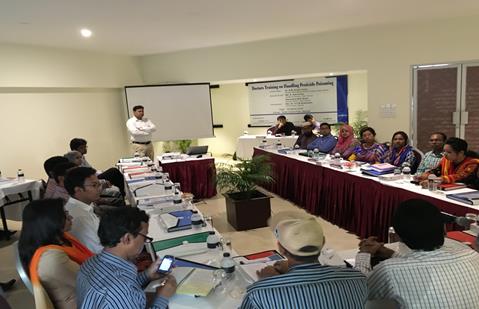Speeches Shim
Due to a lack of awareness and application of proper safety measures while handling pesticides, farmers’ health in Bangladesh is often unnecessarily put at risk. In cases of exposure to pesticides, farmers need expedient and effective medical attention. Emergency room doctors face many pesticide-exposed patients who need proper medical support within the first hour in order to reduce further health hazards.
All too often doctors have not been properly trained on recognizing symptoms of exposure nor administering treatment properly. To address this challenge, the USAID Agro-Inputs Project in Bangladesh is working with agro-enterprise Syngenta Bangladesh Limited to train doctors in using the Government of Bangladesh’s certified pesticide exposure medical procedures. The project has trained 50 percent of the government doctors who are practicing in the Feed the Future program zone, which operates in 20 districts across southern Bangladesh. Doctors learned how to quickly diagnose and treat pesticide-exposed patients, as well as how to assess the level of exposure. They also learned about issues related to improper handling, mixing, and spraying of chemicals in agriculture, pesticide misuse, and how to minimize the impact of ingestion. In addition, doctors were reminded to counsel patients on the safe use of pesticides to help decrease health risks.
Download the PDF to read the full story of improved response to pesticide poisoning.


Comment
Make a general inquiry or suggest an improvement.